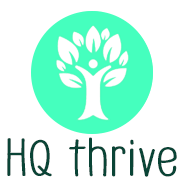Self awareness
|
| Level 3 (typically end of year 4) |
Level 4 (typically end of year 6) |
| Develop reflective practice
-reflect on personal strengths and achievements
Recognise emotions
-describe the influence that people, situations and events have on their emotions
Recognise personal qualities and achievement
-describe personal strengths and challenges and identify skills they wish to develop |
Recognise personal qualities and achievements
-describe the influence that personal qualities and strengths have on their learning outcomes
Recognise emotions
-explain how the appropriateness of emotional responses influences behaviour:
Develop reflective practice
-monitor their progress, seeking and responding to feedback from teachers to assist them in consolidating strengths, addressing weaknesses and fulfilling their potential |
Self management
|
|
| Level 3 (typically end of year 4) |
Level 4 (typically end of year 6) |
| Become confident resilient and adaptable
-persist with tasks when faced with challenges and adapt their approach where first attempts are not successful
Express emotions appropriately
-identify and describe strategies to manage and moderate emotions in increasingly unfamiliar situations |
Develop self-discipline and set goals
-analyse factors that influence ability to self-regulate; devise and apply strategies to monitor own behaviour and set realistic learning goals
Become confident, resilient and adaptable
-devise strategies and formulate plans to assist in the completion of challenging tasks and the maintenance of personal safety
Express emotions appropriately
-explain the influence of emotions on behaviour, learning and relationships |
Social Awareness
|
| Level 3 (typically end of year 4) |
Level 4 (typically end of year 6) |
| Appreciate diverse perspectives
-discuss the value of diverse perspectives and describe a point of view that is different from their own
Understand relationships
-describe factors that contribute to positive relationships including with people at school and in their community: |
Understand relationships
-identify the difference between positive and negative relationships and ways of managing these: |
| Social management |
| Level 3 (typically end of year 4) |
Level 4 (typically end of year 6) |
| Communicate effectively skills that enhance relationships for particular groups and purposes
Negotiate and resolve conflict
-identify a range of conflict resolution strategies to negotiate positive outcomes to problems
Work collaboratively
-describe characteristics of cooperative behaviour and identify evidence of these in group activities: |
Work collaboratively
-contribute to groups and teams, suggesting improvements in methods used for group investigations and project
Negotiate and resolve conflict
-identify causes and effects of conflict, and practise different strategies to diffuse or resolve conflict situations
Communicate effectively
-identify and explain factors that influence effective communication in a variety of situations: |
